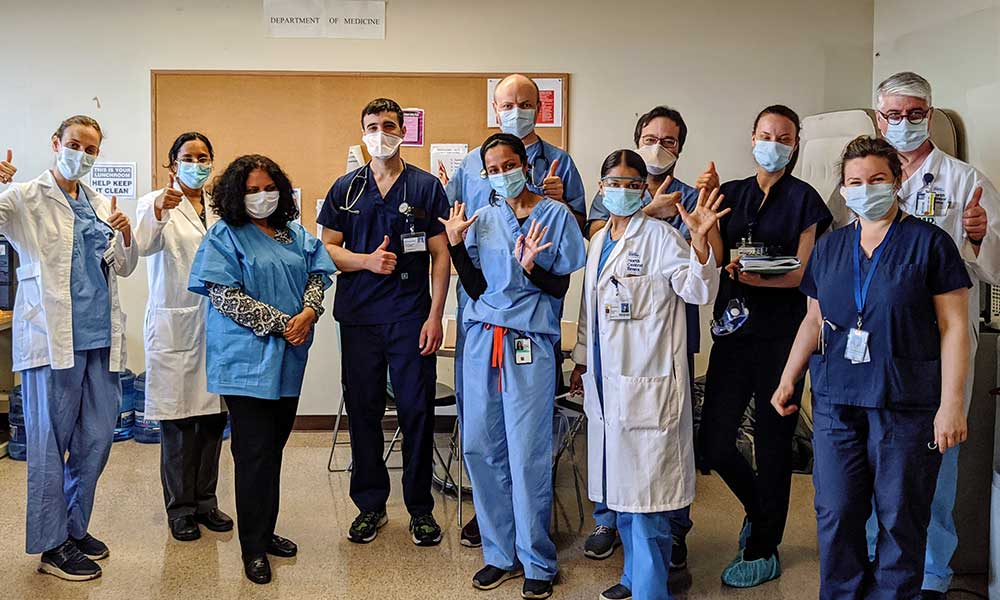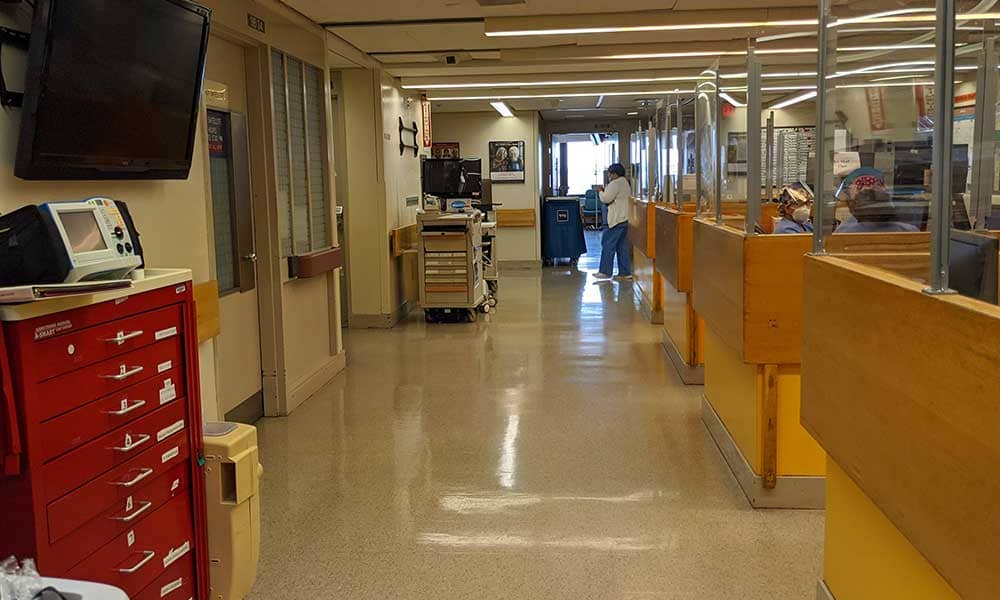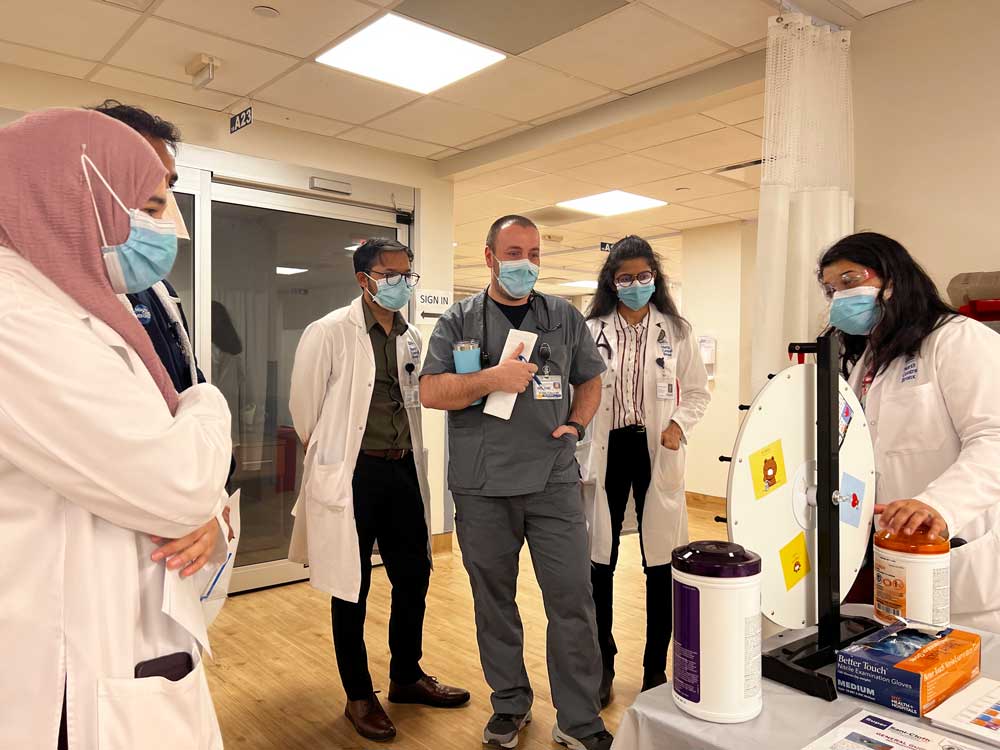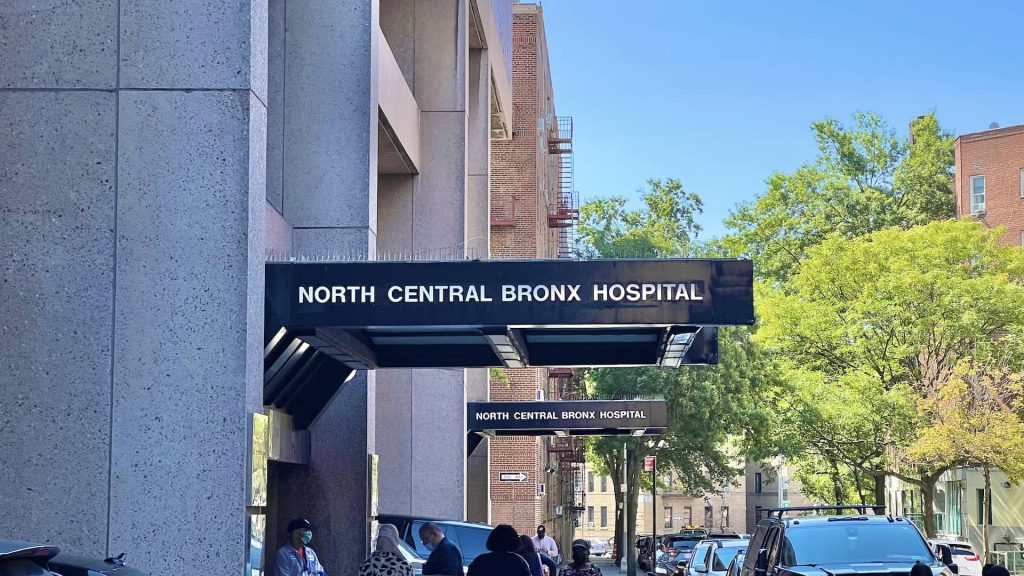Morning Report
During the Morning Report, night residents present admissions to attendings and residents covering the service during the day. Morning Report aims to facilitate medical critical thinking, emphasizing evidence-based medicine and eliminating bias. Residents present selected cases from interviews to assess, plan, and display their clinical reasoning and clinical data review skills. The attending physician aids in formulating the plan and provides education tailored to the clinical case.
Other residents are encouraged to participate in the discussion and present their rationale and differentials.
Noon conference
The comprehensive daily schedule for inpatient medication management includes a noon conference starting at 12:30. This conference serves as a pivotal educational component covering an array of topics spanning all medical specialties, ethical issues, disease pathology and pathophysiology, and major guidelines.
During the conference, attendees have the opportunity to delve into complex medical subjects, discuss emerging treatment modalities, and explore ethical dilemmas commonly encountered in healthcare practice. The inclusion of diverse topics ensures that participants receive a well-rounded education, fostering a deeper understanding of medicine beyond their specific specialty.
One distinguishing feature of the noon conference is the involvement of guest speakers from Jacobi Medical Center, who bring a wealth of knowledge and experience to enrich the learning environment. Their contributions enhance the breadth and depth of discussions, providing valuable insights into current practices, research findings, and clinical innovations.
Research lectures
In cooperation with the Jacobi Medical Center Internal Medicine program, we have organized a comprehensive lecture series during the noon conference focusing on the basics of clinical research, statistical methods, and literature search.
These activities also include the mandatory completion of the Collaborative Institutional Training Initiative (CITI) program modules to acquire the certification necessary for conducting scientific research.
Journal club
Our weekly journal club focuses on the latest and most crucial guidelines, clinical practices, and relevant clinical research, presented and critiqued by our faculty and residents.
These activities aim to foster contemporary evidence-based practice and maintain cutting-edge clinical training in our program. Chief residents and service attendings supervise them.
Evidence-based medicine
In addition to the comprehensive schedule, evidence-based medicine lectures are held, facilitated by residents with attending physicians serving as preceptors. These lectures are integral to the educational curriculum, emphasizing the importance of basing clinical decisions on the most current research evidence available.
In addition to the comprehensive schedule, evidence-based medicine lectures are held, facilitated by residents with attending physicians serving as preceptors. These lectures are integral to the educational curriculum, emphasizing the importance of basing clinical decisions on the most current research evidence available.
During these sessions, residents present and critically appraise research studies, meta-analyses, and clinical trials relevant to patient care. Attendings provide guidance, mentorship, and expert insights, helping residents understand how to apply evidence-based principles in real-world clinical scenarios.
Through this collaborative approach, residents develop essential skills in critically evaluating medical literature, interpreting research findings, and integrating evidence-based practices into their clinical decision-making process. Furthermore, attending physicians serve as role models, demonstrating a commitment to lifelong learning and the pursuit of excellence in patient care.
Morbidity and mortality:
In addition to the other educational components, morbidity and mortality (M&M) lectures are conducted, led by third-year residents with attending physicians serving as preceptors. These sessions typically focus on cases with complex medical histories or adverse outcomes, providing an opportunity for in-depth analysis and discussion.
During M&M lectures, residents present cases that have had challenging clinical courses, adverse events, or unexpected outcomes. The presentation includes a detailed review of the patient’s medical history, diagnostic and treatment interventions, and factors contributing to the morbidity or mortality.
Attendings provide guidance, facilitate discussions, and help residents explore the underlying factors that may have contributed to the adverse outcome. This collaborative approach encourages reflective practice, promotes a deeper understanding of clinical decision-making, and fosters a culture of continuous quality improvement within the healthcare team.
By engaging in M&M lectures, residents gain valuable insights into recognizing and managing complex clinical scenarios, enhancing their clinical reasoning skills, and ultimately improving patient care outcomes. Additionally, attendings play a crucial role in mentoring residents and promoting a culture of accountability, professionalism, and patient safety.
Chief of service:
In the educational framework, chief of service lectures are facilitated by first-year residents, with attending physicians serving as perceptors. These lectures provide a platform for residents to develop leadership skills, enhance their understanding of administrative aspects of patient care, and gain insights into the management of clinical services.
During these sessions, first-year residents lead discussions on topics such as team management, communication strategies, resource allocation, and quality improvement initiatives. They may also review operational aspects of the healthcare system, including workflow optimization, patient throughput, and interdisciplinary collaboration.
Attendings offer guidance, mentorship, and feedback, supporting residents in developing effective leadership strategies and navigating the complexities of healthcare administration. By assuming responsibility for leading these sessions, residents gain valuable experience in project management, decision-making, and promoting a culture of excellence within the healthcare team.
Furthermore, chief of service lectures provide a forum for residents to share innovative ideas, discuss challenges encountered in clinical practice, and collaborate on initiatives aimed at enhancing patient care delivery. Through this collaborative learning environment, residents develop the skills and competencies necessary to assume leadership roles and drive positive change in healthcare settings.




